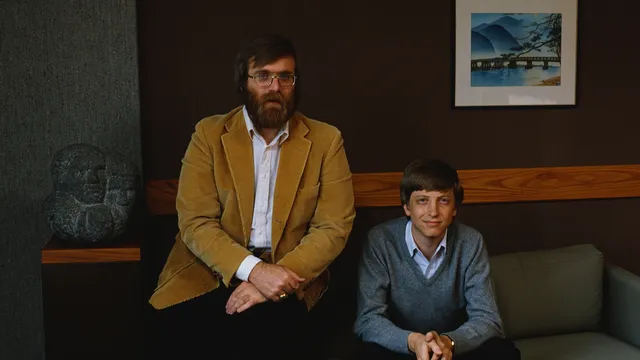
Bill Gates reflects on the computer code that founded Microsoft
2025-04-04 00:00- Microsoft was founded in April 1975 by Bill Gates and Paul Allen.
- The company created influential software, including the Windows operating system, that transformed computing.
- Reflecting on 50 years, Gates recalls the significance of his early code and Microsoft's journey of successes and challenges.
Express your sentiment!
Insights
In April 2025, Microsoft is celebrating its 50th anniversary as a leading technology company. Founded in 1975 by Bill Gates and Paul Allen, the company began with the development of software for the Altair 8800, inspired by an article in Popular Electronics. Gates, a Harvard freshman at the time, lacked a prototype of the Altair but promised a software solution, which led to the creation of BASIC code compatible with the new minicomputer. This initial success paved the way for the development of an extensive suite of widely used software, including the Windows operating system. Throughout its journey, Microsoft has seen significant peaks and valleys. It reached dominating positions in the personal computer market with MS-DOS and Windows, but faced challenges with products like Microsoft Bob and Windows Vista. The company's strategy concerning mobile devices notably failed, ceding the smartphone market to competitors. However, Microsoft has excelled in enterprise productivity software, rivaling efforts from Google. Microsoft has made significant strides in recent years, especially under the leadership of CEO Satya Nadella. Following the initial stagnation after Gates departed, the company has regained its footing, achieving a market valuation of approximately $2.8 trillion while diversifying its investments, notably in cloud computing and artificial intelligence. Reflecting on his past, Gates recently expressed nostalgia for the early days of Microsoft, highlighting the importance of that original code he developed. He acknowledges both the triumphs and the missteps of the company through the decades as it shapes modern computing. Despite its struggles in some areas, Microsoft remains a dominant force in technology, continuing to adapt and innovate to meet the needs of users worldwide.
Contexts
Microsoft Corporation is a leading global technology company founded on April 4, 1975, by Bill Gates and Paul Allen in Albuquerque, New Mexico. The company initially focused on developing and selling a BASIC interpreter for the Altair 8800, an early personal computer. Microsoft's big break came in 1980 when it signed a contract with IBM to provide an operating system for their first personal computer. This led to the creation of MS-DOS, which quickly gained popularity, making Microsoft a key player in the burgeoning PC market. As the company grew, it expanded its product line to include office software, development tools, and various programming languages, establishing a strong foothold in the software industry. In 1985, Microsoft launched Windows, a graphical user interface that operated on top of MS-DOS. This was a pivotal moment in the company's history and marked the beginning of the Windows operating system's dominance in the market. With the launch of Windows 3.0 in 1990, Microsoft solidified its position as a leader in personal computing. The 1990s and early 2000s saw Windows becoming the most widely used operating system worldwide, alongside the introduction of Microsoft Office, which revolutionized productivity software. The company faced antitrust lawsuits during this period as its market share raised concerns among regulators. As the digital landscape evolved, Microsoft adapted its business strategy to include internet services, gaming, and cloud computing. The launch of Windows 95 was instrumental in paving the way for the internet revolution and the company's transition to the web. In 2001, Microsoft entered the gaming market with the introduction of the Xbox, which competed with offerings from Sony and Nintendo, establishing a new revenue stream. Microsoft also expanded into cloud computing with the launch of Azure in 2010, positioning itself as a major cloud service provider. In recent years, Microsoft has emphasized its commitment to innovation and transformation, focusing on artificial intelligence, machine learning, and other emerging technologies. Under the leadership of CEO Satya Nadella, who took over in 2014, the company has fostered a culture of collaboration and inclusivity, shifting away from the traditional competitive mindset. Today, Microsoft is recognized for its wide portfolio of products and services, including Windows, Office 365, LinkedIn, and Azure, and continues to be at the forefront of technological advancement, ensuring its relevance and impact in the industry.